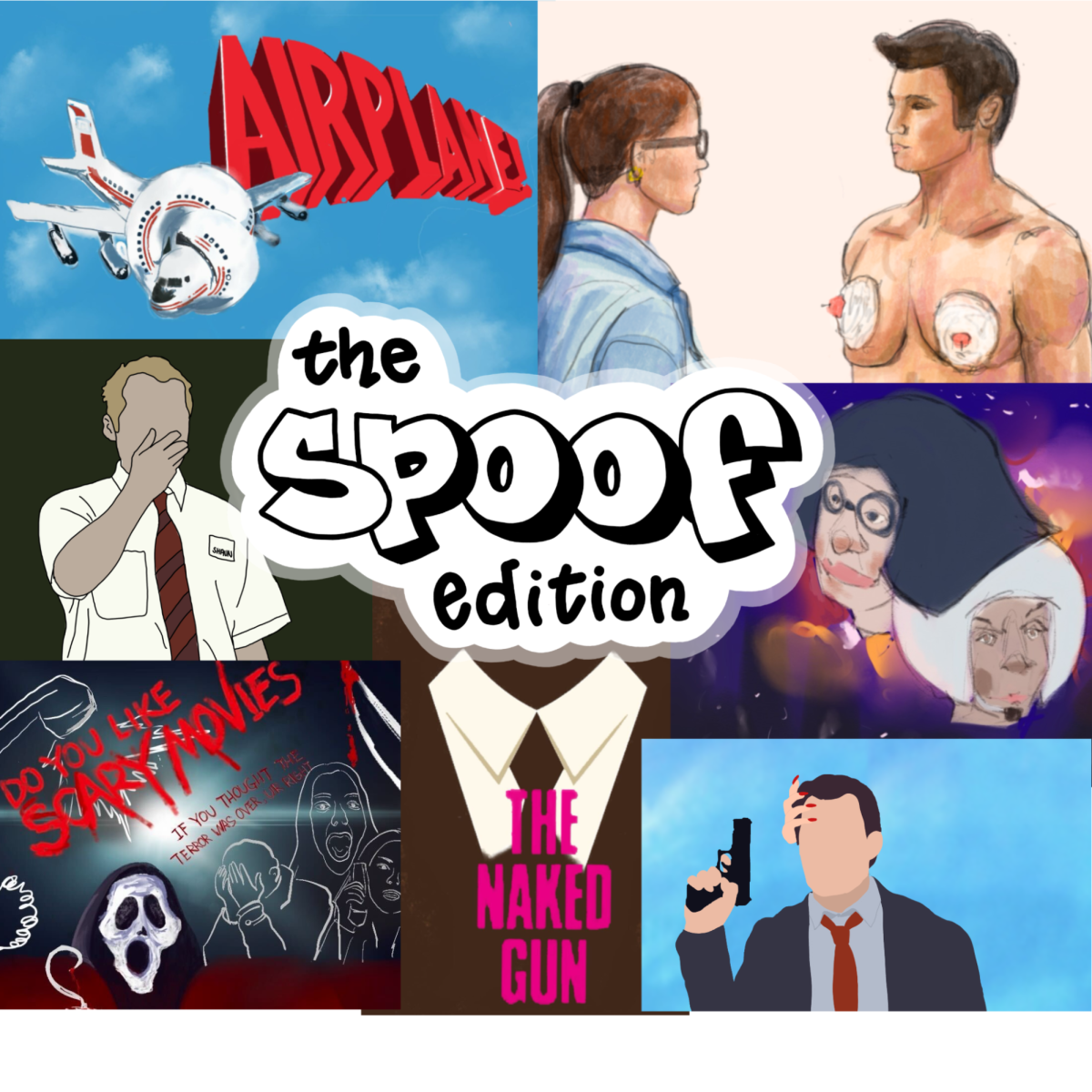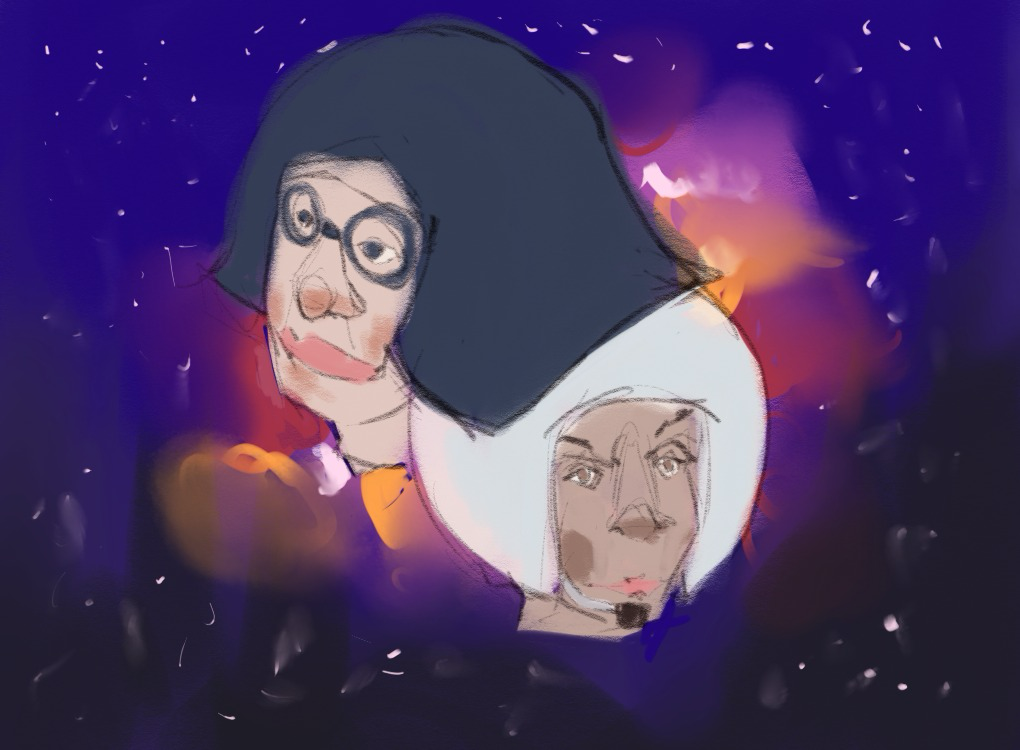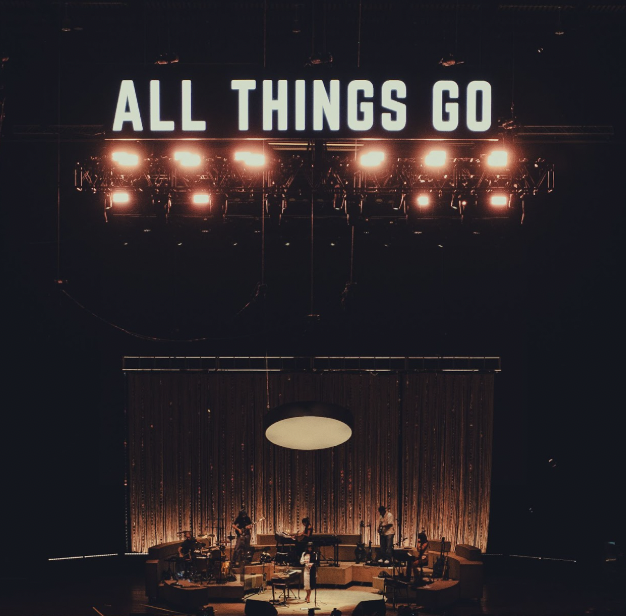★★★☆☆
“Gimme! Gimme! Gimme!” some more ABBA. November 2021 marked the unexpected return of a band most thought had taken its last bow.
With its newest album, “Voyage,” ABBA made its return to the radio and to the limelight with a disco pop splash. While the band’s newest set of songs is far from a flawless glide back into the music scene, “Voyage” satisfies long-time fans with nostalgic tunes and yet another opportunity to reminisce on the heyday of the famous Swedish pop group.
In the 1970s, ABBA produced a slew of singles that would eventually become decade-defining bops. The band’s music has continued to see fame in the form of jukebox stage musical “Mamma Mia!” and its two movie adaptations. Comprised of two once-married couples — Agnetha Fältskog and Björn Ulvaeus with Benny Andersson and Anni-Frid Lyngstad — the group’s iconic music features upbeat melodies, enthralling and poignant lyrics and a wide range of topics from references to the Napoleonic era to a cheery anthem universally used for 17th birthdays. In some ways, “Voyage” follows closely in the band’s esteemed tradition.
Despite the album’s new successes with certain singles, continuity on the album is largely lacking, with some songs presenting a pop beat, others employing a country twang and still others embracing the slow simmer of the ballad. “Voyage” sounds like a hodge-podge of songs discarded from previous albums and modern imitations that have been thrown together to facilitate the reunion album fans have been clamoring about for decades.
ABBA, known for its creativity in songwriting and production, does not disappoint in this regard on “Voyage.” The songs do feature catchy rhythms — an inherent part of any ABBA record. The fourth single on the album, “Don’t Shut me Down,” features a vibrant background keyboard, evolving from a slower, melodic beat to a disco-infused anthem. “Keep an Eye on Dan” enlists the cowbell to add dimension to a surprisingly subtle yet solemn melody. “Ode to Freedom” draws on a variety of instruments to provide a powerful conclusion to the album.
Furthermore, “Voyage” draws on thematic topics never explored by the quartet before. After 40 years of radio silence, the reappearance album features songs about married life, well-loved dogs and forsaken love. While a younger ABBA might not have addressed these subjects, an older and time-worn group, having experienced not only disbandment but also multiple divorces and subsequent careers, features more melancholy, mature and muted sounds on its newest album.
The lyrics themselves leave something to be desired. With songs as classic as “Waterloo” and lyrics as pervasive as “You are the dancing queen / Young and sweet / Only seventeen,” ABBA was perhaps doomed to lyrical failure in its new album. Phrases such as “You look bewildered / And so you should, I would,” fall flat in the face of its previous musical genius. But regardless of the somewhat disappointing lyrical performance of the group, the vocals of Agnetha Fältskog and Anni-Frid Lyngstad continually provide listeners with the breathy, powerful soprano vocals that they have been craving for close to four decades.
What some might see as a cleverly-planned press stunt, others view as the genuine reunion of four great musical artists. Regardless of the motivation, ABBA provides its audience with what they want: a window into the past and a unique opportunity to hear the powerful vocals of an iconic group in a new context. What “Voyage” lacks in lyrical composition and continuity it compensates for in subtle nods to previous hits and moments of ethereal disco.
The majority of singles on the album could be characterized as somewhat pared-down versions of original classics. But even the seemingly lackluster nature of the production will find a home in an older generation that the album seems to cater to, resonating with a group of individuals that has essentially had their childhoods set to an ABBA soundtrack.
“Voyage” does not exist in a cultural vacuum, but rides on the continued relevance of ABBA and acts as an ode to an era long-gone. Without the significance of the band’s reunion, the album seems to fall flat as listeners’ interests might fail to be sustained through the largely whiny ballads that speak to arguably geriatric concerns. Yet, riding on the 40-year-old wave of ABBA’s original success, it offers as much enjoyment as one might expect from the reunion of a once-powerhouse group. With “Voyage,” ABBA might fail to draw a younger generation into a new era of Swedish disco-pop, but successfully reminds an older fanbase of what once was.













